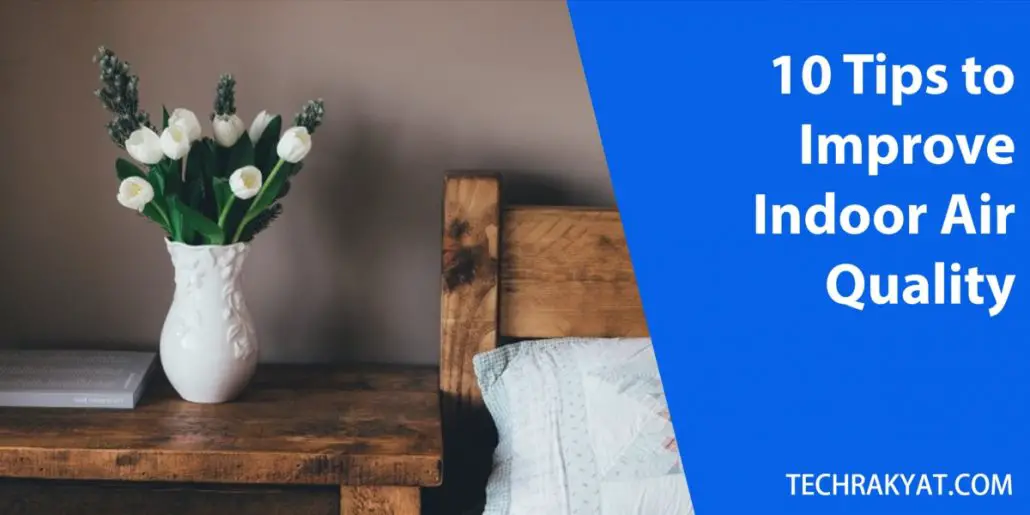In Malaysia, we often associate air pollution with wildfire smoke and haze. It is also important to address indoor air quality. Since more people are staying at home or working from home, we should pay more attention and improve indoor air quality.
Table of Contents
Toggle10 best ways to improve indoor air quality
- Ventile
- Use an air purifier
- Keep the humidity low
- Clean the filter for ventilation and air conditioning appliances.
- Buy and use low VOC product
- Keep the house clean
- Stop smoking indoors
- No to indoor plants
- Avoid harsh chemical cleaning product
1. Ventilate
The cheapest and easiest way to improve the air quality in your house is to keep constant natural airflow
Moreover, it helps reduce indoor humidity and prevent mold growth.
2. Use an air purifier
With Malaysia weather being as hot as it is, opening windows all day may not be feasible. Occasionally, we face haze problems as well.
HEPA-certified air purifiers are proven to improve indoor air quality. In particular, people with allergies and asthma can benefit from this method as it reduces air pollutants and micro dust particles.
Ideally, you should buy a HEPA filter and a high CADR air purifier. I have a thorough guide on how to buy an air purifier.
3. Keep the humidity low
Mold and mites thrive in humid environments, as mentioned above. As a result, keeping humidity levels under control is important.
We have to pay extra care for the bathroom and kitchen areas that are prone to mold growth. So, a bathroom exhaust fan and kitchen hood are necessary to keep them well ventilated. We should always remove any mold that accumulates on the shower, corners, and walls.
And always keep wet clothes out of the house and don’t dry them indoors
.Consider purchasing a dehumidifier if your indoor humidity levels tend to remain high.
4. Clean the filter for ventilation and air conditioning appliances.
The air conditioning system keeps your home at the right temperature all year long. Eventually, their air filters fill up with dust.
Not only does that affect your indoor air quality, it can also wear down your AC system, resulting in costly repairs later.
Therefore, make sure to change your air conditioner filters on time.
5. Buy and use low VOC product
If you are planning to renovate the home, use paint, stains, adhesives, lumber, and insulation that emit low amounts of volatile organic compounds (VOC).
Aside from that, make sure the furniture and carpets you get don’t contain any toxins. They can release VOC over time, and that’s bad for your health.
6. Keep the house clean
Dust that settles on your floor cannot be removed by air purifiers. Dust is disturbed and re-distributed into the air when you turn on the fan or sweep the floor with a broom.
We highly recommend getting a cordless vacuum cleaner with HEPA filter.
If you’re too lazy to do house chores, then you should buy a vacuum robot cleaner, which works wonders in removing dust and pet hair on the floor.
Apart from that, it is recommended that one should also regularly wash and clean the bedding and drapes.
7. Stop smoking indoors
Smoking indoors will immediately contaminate your house. Furthermore, secondhand smoke causes health problems for those who are around it.
Therefore, smoking indoors should be strictly prohibited, even in your own home.
8. Reduce the use of air freshener
Chemical air fresheners should not be used. Even though small amounts of air freshener will not pose a health risk, it is still advisable to avoid them.
9. No indoor plants
On indoor plants, there are two camps of thought. While one claim claims it helps purify indoor air, the other claims it can often do more harm than good. Let’s find out the truth.
Some plants are touted as helping to improve indoor air quality because they release oxygen, they are still allergy triggers for many people. On balance, they create more problems than they help.
Dr. Nicholas BuSaba, associate professor of otolaryngology at Harvard Medical School
A home with 1500 square feet of space would require 680 plants to be growing inside in order for the plants to effectively purify the air.
Cumming and Waring’s report, titled “Potted Plants Do Not Improve Indoor Air Quality: A Review and Analysis of Reported VOC Removal Efficiencies“
Based on the two statements above, if you’re allergic to indoor allergens, it’s better to keep plants out of your house because potted plants does very little in purifying indoor air.
However, if you are not susceptible to allergies, you may wish to keep plants indoors for several reasons and benefits. Keeping houseplants soothes both physical, mental stress and anxiety, as well as improving sleep quality.
10. Avoid harsh chemical cleaning product
Consider using natural cleaning products instead of products that contain so many different kinds of chemicals. The chemicals in cleaners and detergents can be harmful to humans, especially to babies and toddlers.

